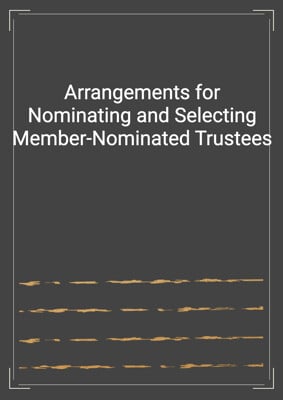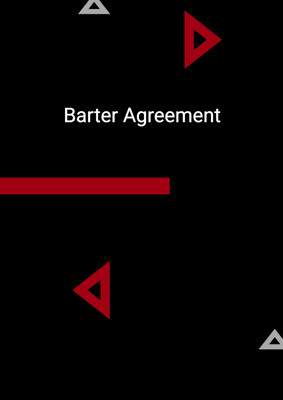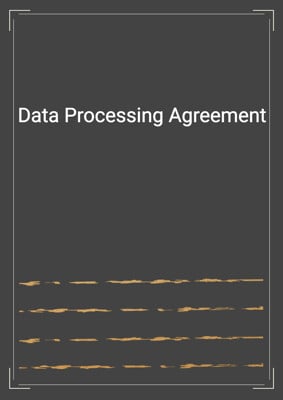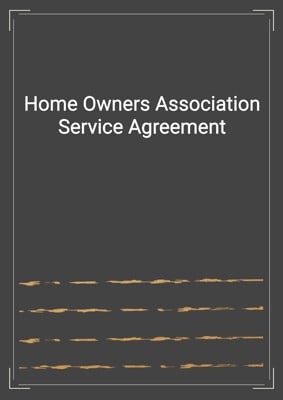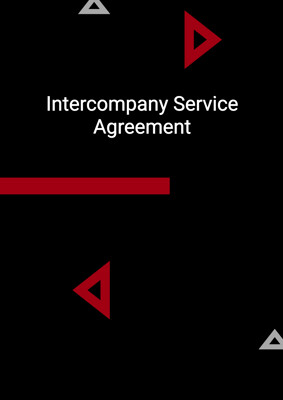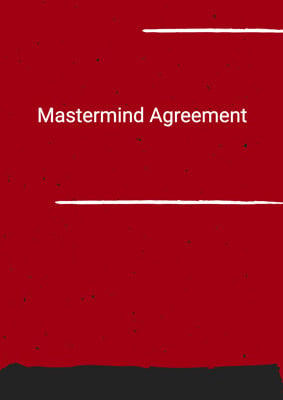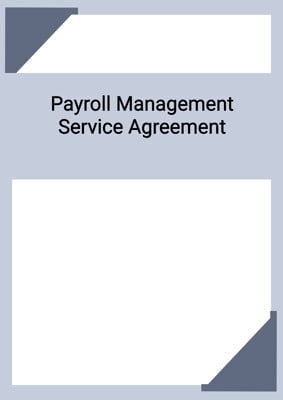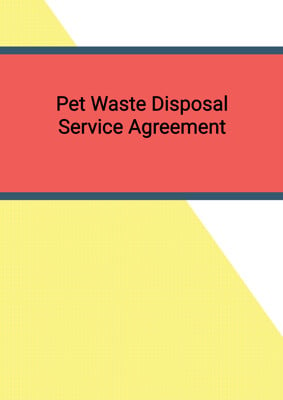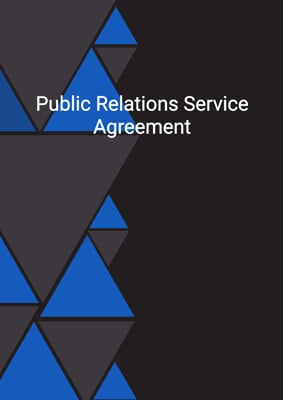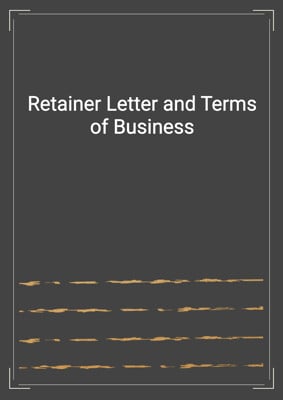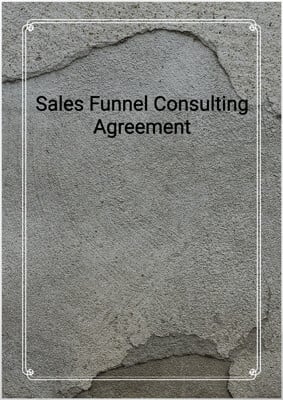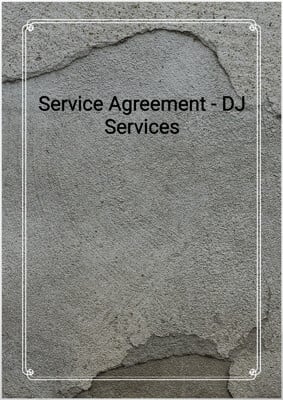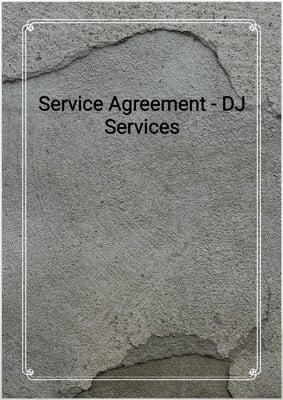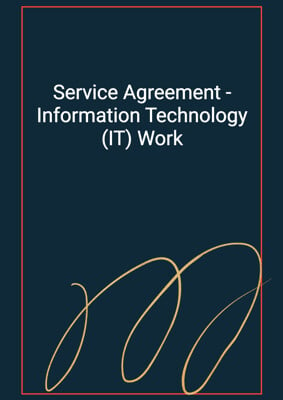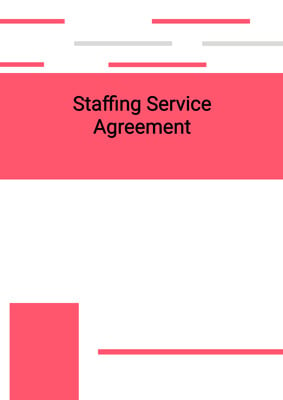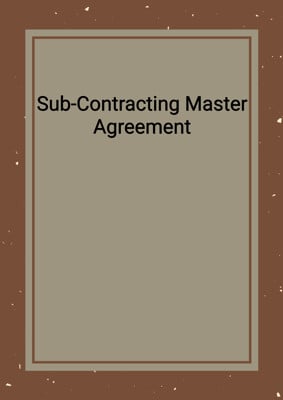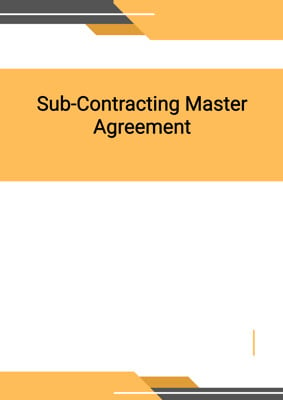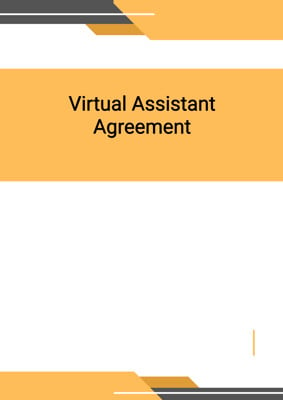
Service Agreement - Online Reputation Management
Customer
This is a Service Agreement suitable for online reputation management services. Under this agreement, a Servicer provides online reputation management services to a Customer for an Agreed Price. This agreement is drafted in favour of the Customer.
How to Tailor the Document for Your Need?
01
Create Document
Fill in the details of the parties. You can click the "Fill with Member’s Information" button to complete it with information saved to your account.
02
Fill Information
Please fill in any additional information by following the step-by-step guide on the left hand side of the preview document and click the "Next" button.
03
Get Document
When you are done, click the "Get Document" button and you can download the document in Word or PDF format.
04
Review Document
Please get all parties to review the document carefully and make any final modifications to ensure that the details are correct before signing the document.
Document Preview
Document Description
The Service Agreement - Online Reputation Management is a legally binding document that outlines the terms and conditions between the Servicer and the Customer for the provision of online reputation management services. The importance of this document lies in its ability to establish clear expectations, responsibilities, and obligations for both parties involved.
The entire document is divided into multiple sections, each addressing specific aspects of the agreement. The first section, titled 'Interpretation,' provides definitions for key terms used throughout the agreement. This ensures that both parties have a clear understanding of the terminology used.
The second section, 'Servicer's Obligations,' outlines the responsibilities of the Servicer in providing the online reputation management services. It emphasizes the use of professional knowledge and skill, as well as the requirement to comply with applicable laws and regulations.
The third section, 'Customer's Obligations,' highlights the responsibilities of the Customer in promptly providing the necessary data, documents, and information required by the Servicer to perform the services.
The fourth section, 'Completion of the Work,' emphasizes the importance of timely completion of the services. It includes provisions for the completion date, extensions, and liquidated damages in case of non-completion.
The fifth section, 'Service Fees,' outlines the payment terms and schedule for the services. It includes provisions for invoicing, payment due dates, and reimbursement of expenses incurred by the Servicer.
The sixth section, 'Content,' addresses the requirement for the Customer to provide specific content or materials necessary for the provision of the services. It clarifies the ownership and use of such content.
The seventh section, 'Licenses and Insurance,' highlights the requirement for the Servicer to obtain necessary licenses and maintain appropriate insurance coverage.
The eighth section, 'Warranties and Indemnities,' outlines the obligations of the Servicer to promptly notify the Customer of any delays, problems, or complaints related to the services. It also includes provisions for rectifying any defects in the provision of services and indemnifying the Customer against any liability arising from personal injury or death.
The ninth section, 'Term and Termination,' specifies the duration of the agreement and the conditions under which either party can terminate the agreement. It includes provisions for refunding fees and returning materials upon termination.
The tenth section, 'Ownership of Materials,' clarifies the ownership of materials and goods delivered or placed on the site for the services. It also addresses the ownership of intellectual property developed under the agreement.
The eleventh section, 'Confidential Information,' establishes the obligations of the Servicer to maintain the confidentiality of the Customer's information and return any confidential information upon termination.
The twelfth section, 'Announcements/Publicity,' requires the parties to obtain prior written approval before making any announcements or disclosures related to the agreement.
The thirteenth section, 'Amendment,' specifies the requirements for any variations or amendments to the agreement to be valid.
The fourteenth section, 'Assignment,' restricts the Servicer from assigning the agreement or subcontracting without the Customer's written consent.
The fifteenth section, 'Severability,' addresses the validity and enforceability of the agreement in case any provision is deemed illegal, void, or unenforceable. It also requires the parties to negotiate a substitute provision if necessary.
The sixteenth section, 'Further Assurance,' requires the parties to perform any further acts or execute additional documents necessary to implement the agreement.
The seventeenth section, 'Warranty of Capacity and Power,' includes representations and warranties from each party regarding their authority and capacity to enter into and perform the obligations under the agreement.
The eighteenth section, 'Force Majeure,' relieves the parties from liability for any failure or delay in performing their obligations due to causes beyond their reasonable control.
The nineteenth section, 'No Rights under Contracts for Third Parties,' clarifies that third parties have no rights to enforce the terms of the agreement.
The twentieth section, 'Arbitration and Proper Law,' encourages the parties to resolve any disputes amicably and specifies the jurisdiction and applicable law for any legal proceedings.
The twenty-first section, 'Notices and Service,' provides guidelines for serving notices between the parties, including the acceptable methods and deemed delivery times.
The twenty-second section, 'Counterparts,' allows the agreement to be executed in multiple counterparts, with each counterpart considered an original document.
How to use this document?
To effectively use the Service Agreement - Online Reputation Management, follow these steps:
1. Familiarize yourself with the definitions provided in the 'Interpretation' section to understand the key terms used throughout the agreement.
2. Review the 'Servicer's Obligations' section to understand the responsibilities of the Servicer in providing the online reputation management services. Ensure that the Servicer commits to using professional knowledge and complying with applicable laws and regulations.
3. Understand the 'Customer's Obligations' outlined in the agreement. Promptly provide all necessary data, documents, and information requested by the Servicer to ensure smooth service delivery.
4. Pay attention to the provisions related to the completion of the work. Note the agreed completion date and any potential extensions or liquidated damages in case of non-completion.
5. Familiarize yourself with the payment terms and schedule outlined in the 'Service Fees' section. Ensure that you understand the invoicing process, payment due dates, and any reimbursement of expenses incurred by the Servicer.
6. If required, provide the necessary content or materials specified in the 'Content' section. Understand the ownership and use rights associated with such content.
7. Verify that the Servicer has obtained the necessary licenses and maintains appropriate insurance coverage as stated in the 'Licenses and Insurance' section.
8. Be aware of the warranties and indemnities provided by the Servicer in case of delays, problems, or complaints related to the services. Understand the process for rectifying defects and the Servicer's liability for personal injury or death.
9. Review the termination conditions outlined in the 'Term and Termination' section. Understand your rights to terminate the agreement and the associated refund of fees.
10. Clarify the ownership of materials and intellectual property as stated in the 'Ownership of Materials' section. Ensure that the agreement aligns with your expectations regarding ownership rights.
11. Maintain confidentiality of any confidential information shared by the Servicer as outlined in the 'Confidential Information' section. Return any confidential information upon termination.
12. Obtain written approval before making any announcements or disclosures related to the agreement, as specified in the 'Announcements/Publicity' section.
13. Any variations or amendments to the agreement should be in writing and signed by all parties involved, as stated in the 'Amendment' section.
14. Understand the restrictions on assignment and subcontracting outlined in the 'Assignment' section. Ensure that the Servicer complies with these requirements.
15. If any provision of the agreement is deemed illegal or unenforceable, consult with the other party to negotiate a valid substitute provision, as stated in the 'Severability' section.
16. Perform any further acts or execute additional documents necessary to implement the agreement, as required by the 'Further Assurance' section.
17. Ensure that each party has the authority and capacity to enter into and perform the obligations under the agreement, as represented in the 'Warranty of Capacity and Power' section.
18. Understand the provisions related to force majeure in the 'Force Majeure' section. Note that parties may be relieved from liability for failure or delay due to causes beyond their control.
19. Remember that third parties have no rights to enforce the terms of the agreement, as stated in the 'No Rights under Contracts for Third Parties' section.
20. Familiarize yourself with the arbitration and proper law provisions in case of disputes, as outlined in the 'Arbitration and Proper Law' section.
21. Follow the guidelines for serving notices between the parties as specified in the 'Notices and Service' section. Ensure that notices are delivered in the prescribed manner and within the specified timeframes.
22. Keep in mind that the agreement may be executed in multiple counterparts, with each counterpart considered an original document, as stated in the 'Counterparts' section.
Not the right document?
Don’t worry, we have thousands of documents for you to choose from:

